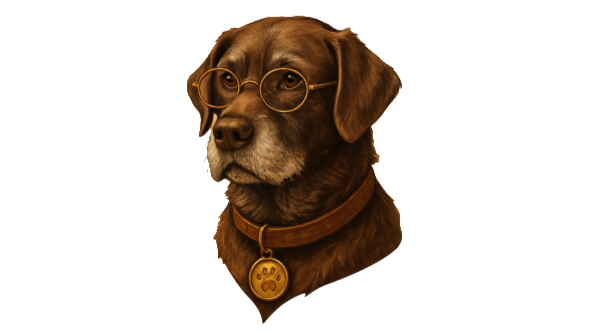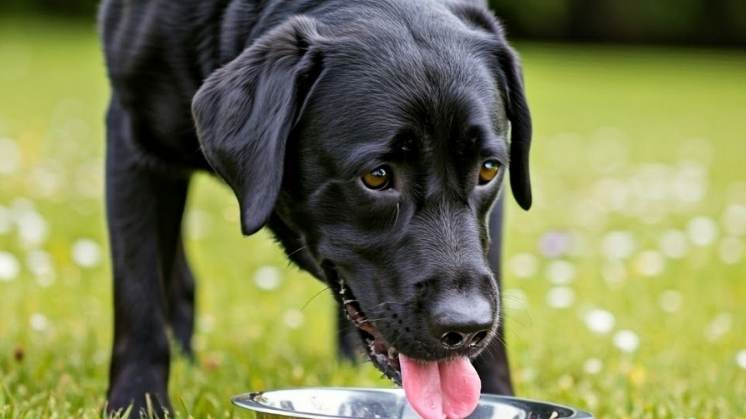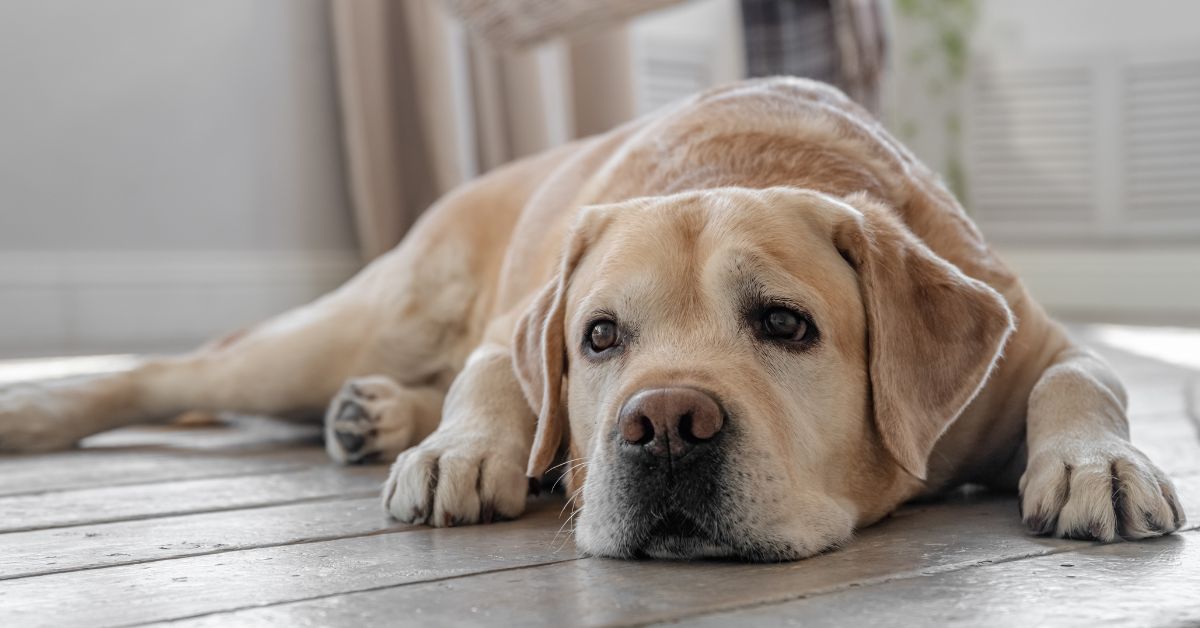
Nose Work for Senior Labradors: Boost Brain Health
Senior Labradors Retrievers still crave purpose and play, but their aging bodies may no longer be able to handle the high-impact activities that once brought them joy. Enter scent-based "nose work"—a powerful tool that taps into their legendary sniffer while strengthening cognitive function, building confidence, and supporting emotional well-being without the joint stress of long retrieves or intensive physical exercise.
Recent studies published in veterinary journals demonstrate that structured scent games can significantly elevate mental engagement, lower stress hormones like cortisol, and even slow the progression of canine cognitive dysfunction (commonly known as doggy dementia). This research-backed approach offers hope for pet parents seeking ways to keep their aging Labs mentally sharp and emotionally fulfilled during their golden years.
The beauty of scent work lies in its accessibility—it requires no special equipment, can be adapted to any living space, and provides profound benefits for dogs of all ages and physical capabilities. For senior Labradors dealing with arthritis, reduced mobility, or cognitive changes, nose work offers a perfect balance of mental stimulation and physical gentleness that can dramatically improve their quality of life.
Understanding the Labrador's Olfactory Advantage
The Science Behind the Sniff
To understand why scent work is so beneficial for Labrador brain health, it's essential to appreciate the remarkable sophistication of the canine olfactory system. Olfaction is the Labrador's dominant sense, with their nose housing up to 300 million scent receptors—approximately 50 times more than humans possess. This incredible sensory apparatus feeds directly into a brain region that is proportionally 40 times larger than the corresponding area in human brains, all dedicated to processing scent information.
This biological advantage means that when we engage a Labrador's sense of smell, we're activating their most powerful and naturally developed cognitive tool. Unlike humans who rely primarily on vision, dogs experience the world through scent in ways we can barely comprehend, making olfactory stimulation the most direct path to their cognitive centers.
The Brain-Body Connection
Engaging the sniffer lights up neural pathways tied to learning and memory—the very circuits that naturally fade with age in both humans and dogs. When a Labrador uses their nose to search, identify, and locate scents, they're exercising multiple brain regions simultaneously, including areas responsible for memory formation, problem-solving, spatial awareness, and reward processing.
This multi-dimensional brain workout is particularly valuable for senior dogs because it strengthens the neural connections that support overall cognitive function. Regular scent work essentially provides "physical therapy" for the brain, helping maintain mental agility and potentially slowing age-related cognitive decline.
Low-Impact, High-Reward Exercise
Unlike agility training or long-distance fetch sessions, scent games impose minimal joint stress, making them ideal for senior Labs dealing with arthritic hips, elbow dysplasia, or other mobility issues. The physical movement required for scent work is typically slow, deliberate, and controlled—exactly what aging joints need to stay mobile without risking injury.
This low-impact nature means that even Labs with significant physical limitations can participate fully in scent activities, providing them with a sense of purpose and accomplishment that might otherwise be lost as their physical capabilities decline.
The Research: Scientific Evidence for Scent Work Benefits
Cognitive Enhancement Studies
Recent veterinary reviews published in peer-reviewed journals link regular scent enrichment to measurable improvements in problem-solving speed and lowered cortisol levels in senior dogs. These studies demonstrate that dogs engaged in regular scent work show enhanced memory function, improved attention spans, and better overall cognitive performance compared to dogs receiving standard exercise alone.
One particularly compelling study found that senior dogs participating in structured scent activities showed 23% improvement in cognitive assessment scores over a 12-week period, while dogs in the control group showed minimal improvement. These findings suggest that scent work doesn't just maintain existing cognitive function—it can actually improve mental performance in aging dogs.
Stress Reduction and Emotional Benefits
Research has also documented significant stress reduction benefits from regular scent work. Dogs engaged in nose work activities show measurably lower cortisol levels, reduced anxiety behaviors, and improved overall emotional regulation. This stress reduction is particularly important for senior dogs who may be experiencing anxiety related to physical changes, cognitive decline, or environmental factors.
The confidence-building aspect of scent work cannot be overstated. As dogs successfully complete scent challenges, they experience the psychological benefits of achievement and purpose, which can significantly improve their overall quality of life and emotional well-being.
Neuroplasticity and Brain Health
Perhaps most exciting is emerging research on neuroplasticity—the brain's ability to form new neural connections throughout life. Scent work appears to promote neuroplasticity in aging dogs, potentially helping their brains adapt to age-related changes and maintain function despite normal cognitive aging processes.
This research suggests that regular scent enrichment may not just slow cognitive decline but could actually help aging brains develop new pathways to compensate for areas that may be affected by age-related changes.
Getting Started: DIY Scent Games You Can Set Up in Minutes
The beauty of scent work lies in its simplicity and accessibility. You don't need expensive equipment or specialized training to begin providing your Labrador with beneficial nose work activities. Here are detailed instructions for effective games you can start today:
Muffin-Tin Mystery Game
What You Need: Standard 12-cup muffin pan, 12 tennis balls, and high-value treats or kibble
How-To: Drop treats into 4 random cups of the muffin tin, then cover each well (both filled and empty) with a tennis ball. Present the puzzle to your Lab and encourage them to nudge and sniff the balls to uncover the hidden prizes. The combination of scent detection and physical manipulation provides both mental stimulation and mild physical activity.
Level-Up Tip: Start with only 3 balls covering the treat-filled cups, making the rewards obvious and building confidence. As your dog masters the concept, gradually increase difficulty by covering all 12 cups, forcing them to rely entirely on scent discrimination to find rewards.
Cardboard Box Bonanza
What You Need: Empty cardboard boxes (Amazon delivery boxes work perfectly), packing paper or newspaper, and treats
How-To: Crumple paper into loose balls and sprinkle treats throughout the paper. Place the paper balls in the box and loosely close the flaps. Your Lab will need to use both scent and problem-solving skills to navigate through the paper and locate hidden treats.
Advanced Version: Create a "scent tower" by stacking multiple boxes of different sizes, each containing paper and treats at varying levels. This three-dimensional puzzle challenges spatial reasoning while providing extended scent work opportunities.
Backyard Treat Trail Adventure
What You Need: Small, aromatic treats and an outdoor space (or long hallway)
How-To: While your dog waits indoors or in a separate area, lay a winding path of 10-15 treats throughout your yard or along a hallway. The treats should be spaced 2-3 feet apart initially, creating a clear scent trail for your Lab to follow from beginning to end.
Difficulty Progression: Once your dog masters basic trail following, remove approximately 50% of the treats, creating gaps in the trail. This forces true scent tracking as your Lab must use their nose to pick up the scent trail between visible treats, significantly increasing the cognitive challenge.
Scent Discrimination Swaps
What You Need: Two identical cloth pieces (old t-shirts or washcloths), essential oils (lavender, vanilla extract, rosemary)
How-To: Apply 2 drops of lavender oil to one cloth and vanilla extract to another. Hide each cloth in different locations, then guide your Lab to search for specific scents using verbal cues like "Find lavender!" followed by "Find vanilla!" This game teaches scent discrimination—a advanced cognitive skill that provides excellent mental exercise.
Expert Level: Expand to three or more distinct scents (rosemary, anise, clove) and introduce the concept of "blank" searches where some areas contain no target scent, teaching your dog when to stop searching and move on.
Critical Safety Considerations
Always start scent games on non-slip floors to prevent falls, especially important for senior dogs with mobility issues. Avoid using small objects that could pose choking hazards, and limit initial sessions to approximately 10 minutes to prevent sensory fatigue, which can cause stress rather than enjoyment.
Building a Progressive Difficulty Ladder
Beginner Level (Weeks 1-2): Foundation Building Start with visual and olfactory clues combined—treats should be partially visible to build confidence and understanding of the game concept. Focus on success and positive associations with scent work activities. Dogs should experience easy wins that build enthusiasm for nose work.
Intermediate Level (Weeks 3-4): Pure Scent Focus Remove visual hints entirely, requiring dogs to rely solely on their nose to locate single hidden sources. This transition teaches true scent detection skills while building confidence in their natural abilities.
Advanced Level (Month 2+): Complex Discrimination Introduce multiple hides at varying heights (floor level, chair height, etc.) plus "blank" areas containing no rewards. This teaches scent discrimination and helps dogs learn when to move on from unproductive search areas.
Expert Level: Specialized Training Introduce target odors used in official AKC Scent Work (such as birch hydrosol) and begin timing searches for friendly competition. This level mimics professional scent work training and can provide ongoing challenges for dogs who excel at nose work.
Recognizing Fatigue and Stress Signals
Understanding when your Labrador has reached their mental or physical limits is crucial for maintaining positive associations with scent work. Watch for these warning signs:
Physical Stress Indicators:
- Excessive panting when room temperature is comfortable
- Trembling or shaking not related to excitement
- Seeking cool surfaces or attempting to leave the activity area
Behavioral Stress Signals:
- Repeated yawning, lip-licking, or turning away from the search area
- "Velcro" behavior (excessive clinginess) instead of confident, independent searching
- Slowing search pace significantly or ignoring usually high-value treats
When you observe two or more stress signals, end the session immediately on a positive note: reveal a hidden treat, provide enthusiastic praise, and offer fresh water. This approach maintains positive associations with scent work while respecting your dog's current limitations.
Tracking Progress: Simple Documentation Methods
Keeping a basic log helps you monitor your Labrador's improvement and adjust difficulty levels appropriately. Record these simple data points after each session:
Essential Tracking Elements:
- Date and type of game played
- Completion time (how long it took to find all hidden items)
- Energy level (1-5 scale, with 5 being highly enthusiastic)
- Brief notes about behavior, mood, or any physical concerns
Sample Progress Entry: 6/23 - Muffin-Tin Mystery - 3 min 12 sec - Energy Level 4 - Tail wagged throughout entire session 6/25 - Treat Trail - 5 min 40 sec - Energy Level 3 - Slight limp noticed, shortened route
Over two to three weeks of consistent practice, you should observe decreasing search times and increasing engagement levels—even in dogs already showing mild signs of cognitive decline. This improvement indicates strengthening neural pathways and growing confidence in scent work abilities.
Bonus: 7-Day Senior Labrador Retriever Scent Challenge
To help you get started with a structured approach, here's a week-long introduction to scent work designed specifically for senior Labradors:
Day 1: Muffin-Tin Mystery (6 cups only) - Build confidence with easier version Day 2: Cardboard Box Bonanza - Introduce new textures and hiding methods Day 3: Rest day with gentle sniff-walk - Allow mental processing time Day 4: Backyard Treat Trail - Engage natural tracking instincts Day 5: Scent Swaps (lavender vs. vanilla) - Begin discrimination training Day 6: Repeat favorite game with double hides - Increase familiar challenge Day 7: "Blank" room search - Advanced discrimination with decoy areas
This progression allows your Lab to build skills gradually while maintaining enthusiasm and avoiding mental fatigue.
Long-Term Benefits and Lifestyle Integration
Cognitive Maintenance and Enhancement
Regular scent work provides ongoing cognitive maintenance that can help preserve mental function well into your Labrador's senior years. The complex mental processes required for scent detection, discrimination, and problem-solving provide comprehensive brain exercise that supports overall neurological health.
Confidence and Purpose
Perhaps equally important are the psychological benefits of scent work. Senior dogs who may feel limited by physical changes can rediscover their sense of purpose and capability through nose work activities. This renewed confidence often translates into improved overall demeanor and quality of life.
Adaptability for Changing Needs
As your Labrador ages, scent work can be easily modified to accommodate changing physical and cognitive capabilities. Games can be made simpler or more complex, areas can be adjusted for mobility limitations, and session lengths can be tailored to energy levels and attention spans.
Conclusion: Investing in Your Labrador Retriever's Cognitive Future
Scent work represents one of the most powerful, accessible, and enjoyable ways to support your Labrador's brain health throughout their senior years. By tapping into their natural olfactory abilities, you're providing targeted cognitive exercise that can help maintain mental sharpness, reduce stress, and enhance overall quality of life.
The investment in time is minimal—just 5-10 minutes several times per week—but the benefits are substantial and long-lasting. Whether your Lab is just entering their senior years or already showing signs of cognitive changes, scent work offers hope, engagement, and joy during a time when these qualities become increasingly precious.
Start with simple games, observe your dog's responses, and gradually build complexity as their skills and confidence grow. Your Labrador's remarkable nose is waiting to be engaged—and their brain health depends on giving it the workout it deserves.
📸 Photo Credits: Featured images in this article are licensed from Shutterstock



